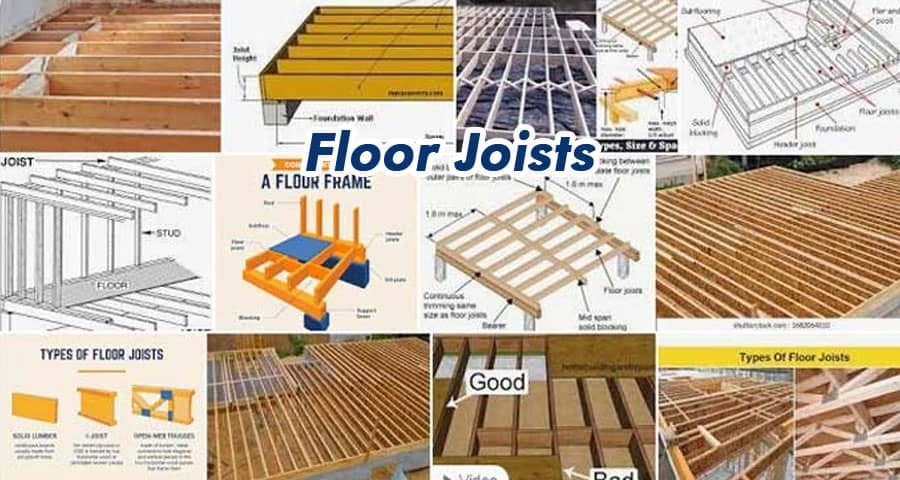Unveiling the Benefits, Drawbacks, and Varieties of Floor Joists

In the realm of construction, the choice of floor joists plays a pivotal role in determining the structural integrity, durability, and overall performance of a building. Understanding the benefits, drawbacks, and various types of floor joists is indispensable for architects, engineers, contractors, and homeowners alike.
Benefits of Floor Joists
- Structural Support: Floor joists serve as the backbone of a building's flooring system, providing crucial support for the weight of occupants, furniture, and other loads. Their robust construction ensures stability and prevents sagging or unevenness.
- Flexibility in Design: With a myriad of materials, sizes, and configurations available, floor joists offer architects and builders unparalleled flexibility in designing spaces. Whether it's an open-plan layout or a multi-story structure, the adaptability of floor joists allows for customized solutions to meet specific project requirements.
- Enhanced Sound Insulation: Properly installed floor joists contribute to sound insulation, minimizing the transmission of noise between floors. This is particularly advantageous in residential and commercial settings where privacy and acoustic comfort are paramount.
- Cost-Efficiency: Compared to alternative structural systems, floor joists offer a cost-effective solution for constructing floors. Their lightweight nature translates to reduced material expenses and labor costs, making them an economical choice for projects with budget constraints.
- Ease of Installation: Modern floor joist systems are engineered for ease of installation, facilitating swift and efficient construction processes. This not only accelerates project timelines but also minimizes disruptions on-site, resulting in greater productivity and cost savings.
Drawbacks of Floor Joists
- Limited Span Capacity: While floor joists boast impressive load-bearing capabilities, they are subject to span limitations. Exceeding the recommended span can lead to deflection, sagging, or even structural failure, necessitating additional support or reinforcement measures.
- Susceptibility to Moisture Damage: Wood-based floor joists are susceptible to moisture-related issues such as rot, decay, and insect infestation. In environments prone to high humidity or water intrusion, proper moisture management strategies must be implemented to mitigate the risk of damage and prolong the lifespan of the joists.
- Fire Hazard: Traditional wood joists pose a fire hazard due to their combustible nature. In the event of a fire, unprotected floor joists can contribute to the rapid spread of flames, compromising the safety of occupants and the structural integrity of the building.
- Limited Thermal Performance: Conventional floor joists have limited thermal insulation properties, resulting in energy loss and reduced thermal comfort. Incorporating insulation materials or opting for alternative joist systems with enhanced thermal performance can mitigate this drawback and improve energy efficiency.
Types of Floor Joists
- Wood Joists: Wood joists, typically made from dimensional lumber or engineered wood products, are a popular choice for residential and light commercial construction. They offer versatility, affordability, and ease of installation, making them a preferred option for many builders.
- Steel Joists: Steel joists, fabricated from structural steel sections, are renowned for their strength, durability, and long-span capabilities. Ideal for industrial, commercial, and high-rise applications, steel joists provide exceptional load-bearing capacity and resistance to fire, moisture, and pests.
- Engineered Joists: Engineered joists, such as I-joists and open-web trusses, combine the structural advantages of wood or steel with advanced manufacturing techniques. These prefabricated components offer superior strength-to-weight ratios, dimensional stability, and design flexibility, making them an optimal choice for modern construction projects.
- Concrete Joists: Concrete joists, reinforced with steel bars or fibers, are used in heavy-duty applications where high load-bearing capacity and fire resistance are paramount. Commonly employed in industrial facilities, parking garages, and infrastructure projects, concrete joists offer exceptional durability and longevity.
In conclusion, the selection of floor joists is a critical decision that profoundly impacts the performance, safety, and longevity of a building. By weighing the benefits and drawbacks of various joist types and considering specific project requirements, stakeholders can make informed choices that optimize structural integrity, cost-efficiency, and sustainability.
